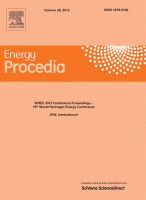Economic Competitiveness and Environmental Implications of Hydrogen Energy and Fuel Cell Electric Vehicles in ASEAN Countries: The Current and Future Scenarios
Publication Year: 2021
Author(s): Li Y, Kimura S
Abstract:
Hydrogen as an energy carrier faces challenges such as high costs of hydrogen supply, high cost of fuel cell electric vehicles (FCEVs), and substantial infrastructure requirements. However, leading countries have announced long-term plan and targets in developing hydrogen energy. This study asks if hydrogen-based road transport, especially FCEVs in the fleets of passenger cars, buses, and trucks, could be economically justified in the ASEAN member states. If not, what strategies to take for ASEAN member states? The study applies a well-to-wheel model and a total cost of ownership model to compare the energy consumption, carbon emissions, as well as the costs of FCEVs with those of alternative powertrains. This practice shows the scale of the cost gaps. Subsequently, it estimates the implications of predicted future developments of both hydrogen and FCEVs, in terms of costs and carbon emissions reduced. The results indicate the areas in which FCEVs are most likely to become competitive in the near future, and thus could be targeted and prioritised. By comparing the country-specific results, implications are extended to what policies are most relevant in facilitating the development of hydrogen and fuel cell.
Source of Publication: Energy Policy
Vol/Issue: 148, Part B, 111980
DOI No.: 10.1016/j.enpol.2020.111980
Country: Thailand
Publisher/Organisation: Elsevier Ltd.
Rights: Elsevier Ltd.
URL:
https://www.sciencedirect.com/science/article/pii/S0301421520306911
Theme: Vehicle Technology | Subtheme: Alternate fuels
Related Documents
Research Papers/Articles

Abstract:
More than 150 Hydrogen refueling stations were built around the world in the past 10 years. Fu... Read More
Research Papers/Articles

Abstract:
An increase in electricity production from Renewable Energy Sources (RES) requires a consequen... Read More
Research Papers/Articles

Abstract:



